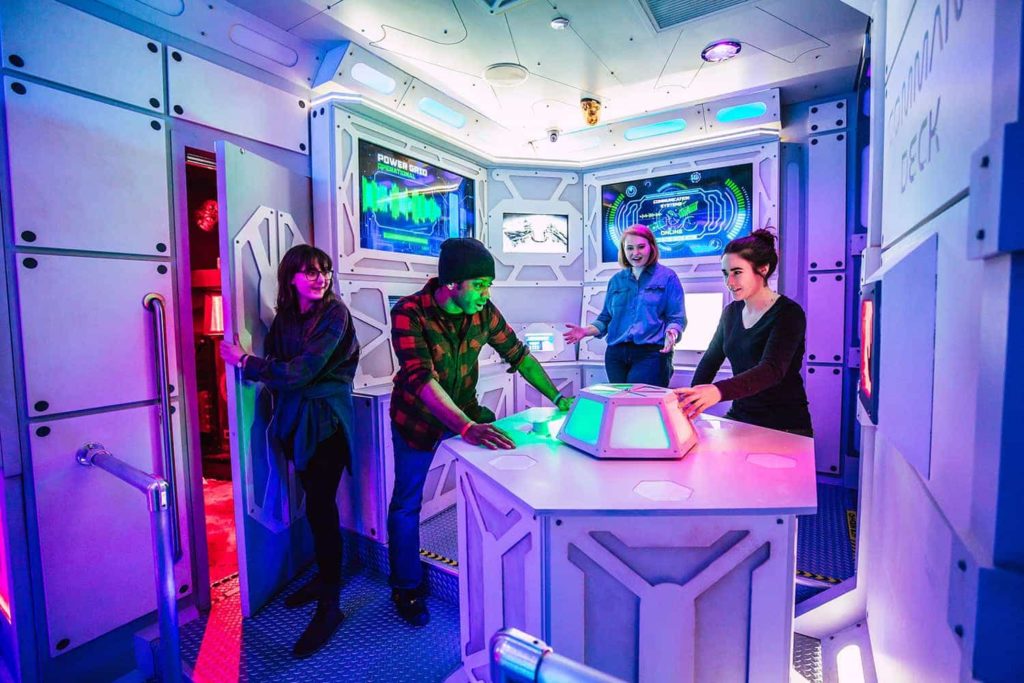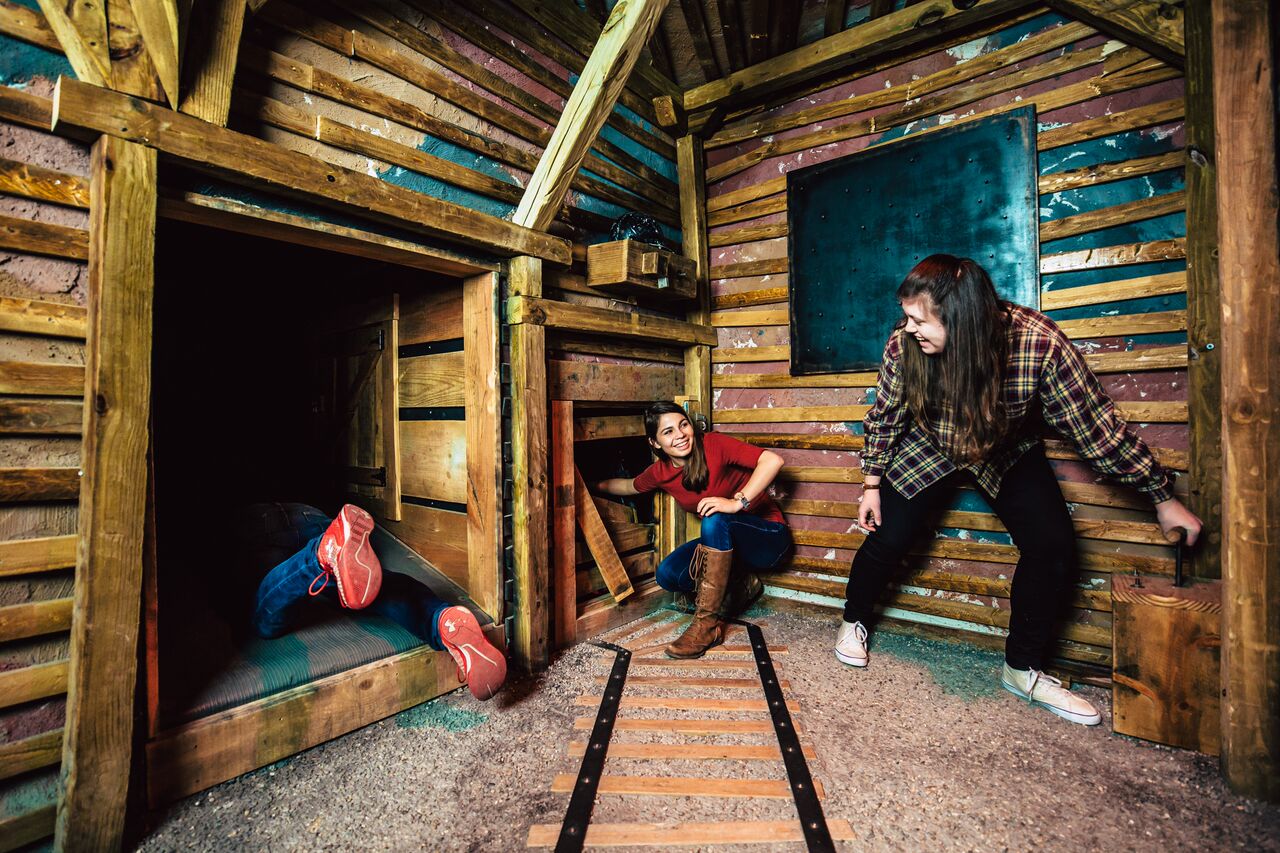A Thrilling Night Out: Experience the very best Escape Room in Seattle
Challenge Your Mind With Our Intriguing Escape Room Puzzles and Clues
Beginning on an escape space adventure uses a multifaceted experience that mixes cognitive challenges with immersive narration. Each area, thoroughly crafted with unique styles, attracts participants right into a globe where logic, monitoring, and physical puzzles assemble.
The Art of Problem Style
The art of problem design in getaway areas is a precise and innovative procedure that requires a deep understanding of both cognitive and psychological engagement. Crafting a successful challenge entails stabilizing intricacy with solvability, making certain that participants stay challenged yet not overwhelmed. This balance is crucial, as it promotes a sense of achievement and advertises continued interaction.
Puzzle designers should consider different cognitive abilities, such as pattern acknowledgment, deductive reasoning, and spatial understanding. These elements need to be intertwined perfectly within the narrative of the getaway space, enhancing the immersive experience. Emotional engagement is similarly essential; problems must stimulate curiosity, exhilaration, and occasional stress, motivating individuals to stand firm and inevitably be successful.
Interest to information is critical. Every clue, prop, and mechanism should be thoroughly created and evaluated to ensure functionality and comprehensibility within the storyline. Developers often iterate on their productions, integrating comments from examination groups to refine difficulty levels and get rid of obscurities.

Sorts Of Escape Room Obstacles
Recognizing the intricacies of challenge layout naturally causes an exploration of the diverse kinds of challenges encountered in retreat spaces. These difficulties can be broadly classified right into physical problems, reasoning puzzles, and empirical problems, each offering distinct kinds of engagement and cognitive stimulation.
Physical challenges need participants to engage with their atmosphere, typically involving tasks such as constructing items, controling devices, or discovering concealed areas. These challenges engage responsive senses and spatial thinking, encouraging team effort and hands-on problem-solving.
Reasoning problems, on the other hand, need logical thinking and pattern recognition. Participants could be charged with deciphering ciphers, solving mathematical troubles, or locating links in between apparently unrelated hints - escape room in seattle. These puzzles are made to examine the gamers' deductive thinking and intellectual prowess
Observational challenges depend on keen attention to information. Gamers must scrutinize their environments to identify refined hints, discrepancies, or concealed messages. These challenges usually require an eagle eye and a capability to perceive connections that might forget.
Methods for Success
Achieving success in getaway areas needs a thoughtful mix of technique and cooperation. Teamwork is vital; players need to utilize their collective toughness to solve complicated problems efficiently. Splitting jobs according to individual abilities can enhance the procedure-- those with a knack for pattern recognition can manage visual puzzles, while rational thinkers take on series and riddles.
Effective interaction is an additional cornerstone of success. Sharing discoveries immediately makes sure and prevents duplicated efforts everyone stays on the very same page. Using a main location to place discovered things can help track development and prevent missing out on critical hints.
Time management is similarly vital. Allot a particular amount of time to each challenge, staying clear of long term concentrate on any single difficulty. Seeking or switching puzzles aid from colleagues can give fresh viewpoints. if development stalls.
It's likewise helpful to acquaint oneself with typical escape room motifs and challenge types beforehand. Recognizing possible challenge formats, such as ciphers or lock mixes, can expedite analytical.
Lastly, maintaining a favorable and made up perspective under pressure can considerably impact efficiency. Anxiety can cloud judgment, so keeping tranquil guarantees clear reasoning and effective collaboration, leading to a greater possibility of efficiently getting away.

Benefits of Escape Rooms
Taking part in escape areas supplies a multitude of advantages that expand past plain home entertainment. These immersive experiences function as a durable system for creating important reasoning and analytical skills. Participants are required to analyze ideas, recognize patterns, and create options under time restrictions, fostering imagination and cognitive versatility.
Additionally, escape rooms are an effective tool for enhancing synergy and interaction. The collective nature of these activities demands reliable communication and coordination amongst employee. This setting motivates participants to express their ideas clearly, listen actively, and job synergistically in the direction of a common objective, consequently strengthening social skills.
Furthermore, retreat spaces provide a superb opportunity for tension alleviation and mental rejuvenation. The gripping nature of the challenges permits individuals to divert their emphasis from day-to-day stress factors, advertising a sense of achievement and wellness upon solving the challenges. This can result in boosted mental wellness and enhanced performance in other locations of life.
Lastly, these experiences often need creativity and ingenuity, which can equate you can try these out right into innovative analytical capacities in expert setups. By engaging in getaway areas, individuals can refine a varied capability that applies in numerous real-world situations, making them a beneficial addition to any type of professional or individual growth plan.
Popular Themes and Situations
Exploring the diverse world of getaway spaces discloses a myriad of popular styles and situations that astound individuals and heighten the immersive experience. Among the most cherished motifs are blog here those that transport players into historical periods or sensational worlds. Ancient Egyptian tombs, medieval castles, and pirate adventures are perennial faves, permitting individuals to address problems within highly thorough setups that stimulate a feeling of experience and discovery.
One more prevalent theme is the enigma and investigative genre, where players find themselves in the duty of sleuths addressing a criminal activity or revealing tricks. These circumstances typically include complex storylines and a series of interconnected hints that need eager monitoring and deductive reasoning to unwind.
Furthermore, science fiction and scary styles hold substantial charm, drawing on the intrigue of futuristic modern technology or the excitement of navigating haunted houses and research laboratories. These circumstances regularly integrate advanced props and unique impacts, boosting the realism and stress.
Finally, many retreat spaces attract motivation from pop culture, creating experiences based upon beloved publications, films, or television shows. This can create a sense of knowledge and exhilaration, as individuals involve with situations that pay tribute to their preferred stories.
Final Thought
The detailed layout of escape room challenges and ideas supplies an unique blend of cognitive difficulties and immersive narration. By involving in different kinds of physical, sensible, and empirical puzzles, participants fine-tune important reasoning and synergy abilities.
Each area, meticulously crafted with unique themes, draws participants into a world where index reasoning, monitoring, and physical problems merge.The art of problem layout in retreat areas is a imaginative and careful procedure that needs a deep understanding of both cognitive and emotional interaction. Crafting a successful puzzle involves stabilizing intricacy with solvability, making sure that participants stay challenged yet not bewildered. The gripping nature of the difficulties enables individuals to divert their emphasis from day-to-day stressors, promoting a sense of success and health upon fixing the challenges.The elaborate design of retreat space challenges and clues supplies a special blend of cognitive challenges and immersive narration.